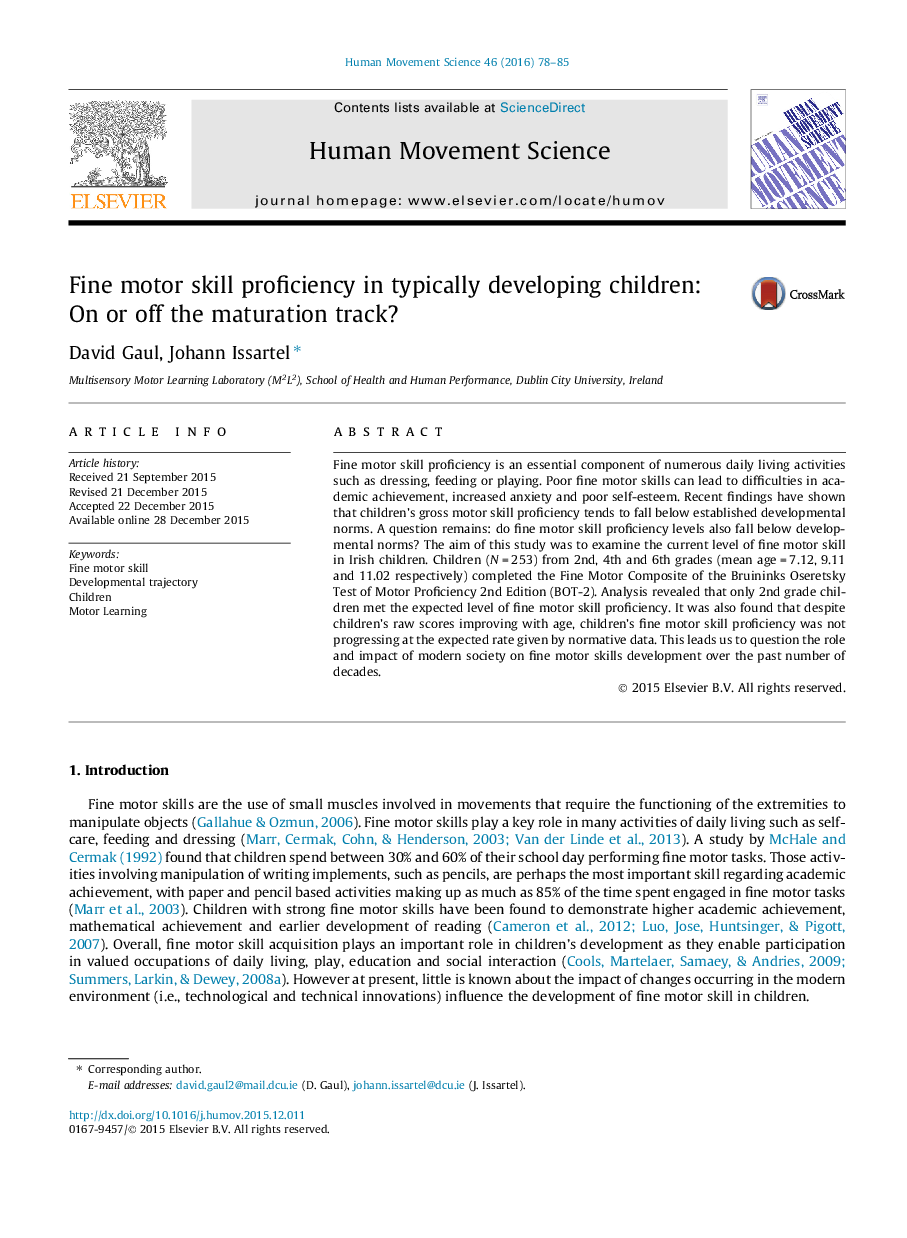| Article ID | Journal | Published Year | Pages | File Type |
|---|---|---|---|---|
| 928207 | Human Movement Science | 2016 | 8 Pages |
•This study assessed fine motor skill proficiency levels in typically developing children.•Children’s fine motor proficiency was found to fall behind the expected norms.•Age related differences were found in children’s fine motor skill development.
Fine motor skill proficiency is an essential component of numerous daily living activities such as dressing, feeding or playing. Poor fine motor skills can lead to difficulties in academic achievement, increased anxiety and poor self-esteem. Recent findings have shown that children’s gross motor skill proficiency tends to fall below established developmental norms. A question remains: do fine motor skill proficiency levels also fall below developmental norms? The aim of this study was to examine the current level of fine motor skill in Irish children. Children (N = 253) from 2nd, 4th and 6th grades (mean age = 7.12, 9.11 and 11.02 respectively) completed the Fine Motor Composite of the Bruininks Oseretsky Test of Motor Proficiency 2nd Edition (BOT-2). Analysis revealed that only 2nd grade children met the expected level of fine motor skill proficiency. It was also found that despite children’s raw scores improving with age, children’s fine motor skill proficiency was not progressing at the expected rate given by normative data. This leads us to question the role and impact of modern society on fine motor skills development over the past number of decades.
